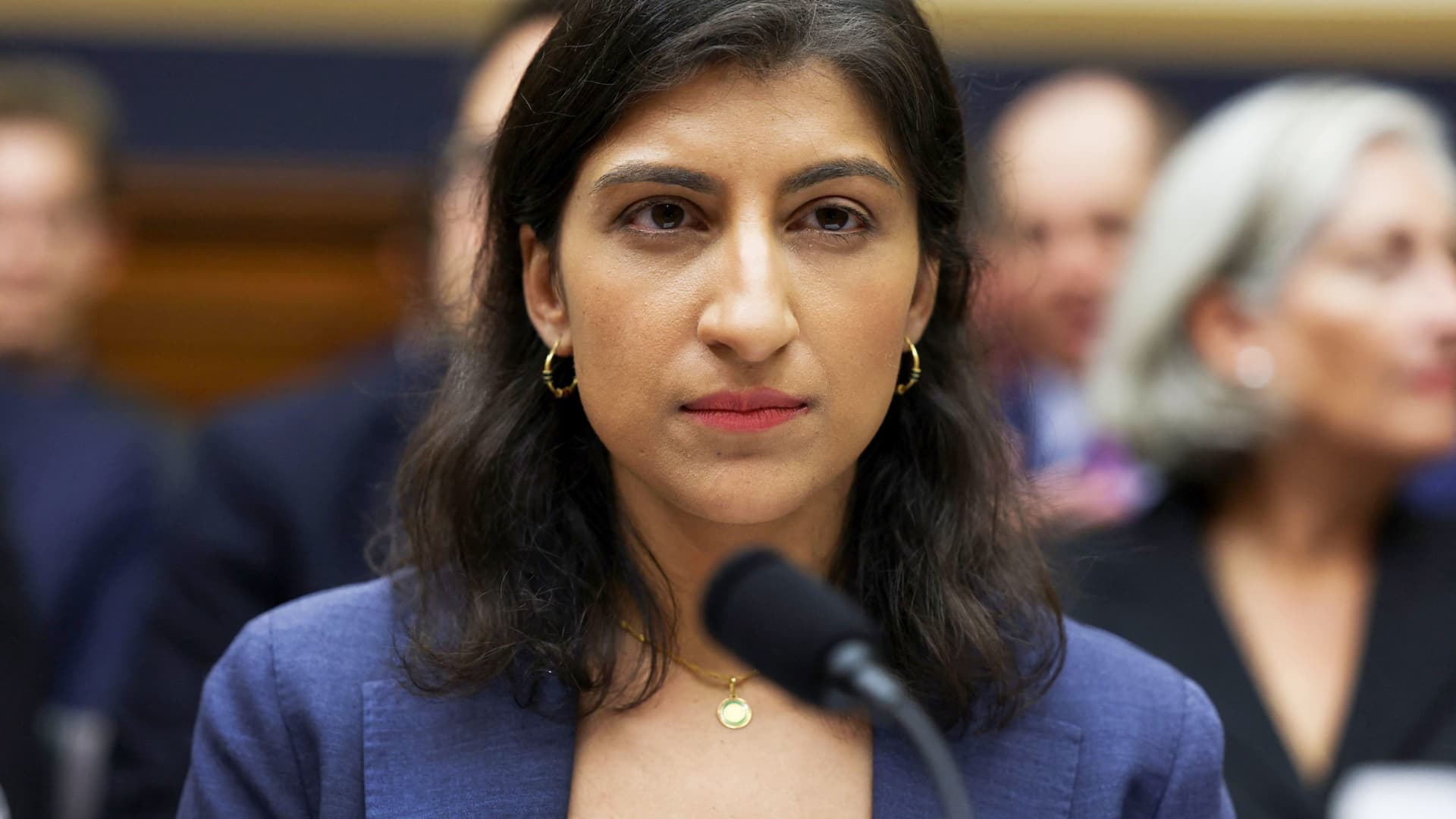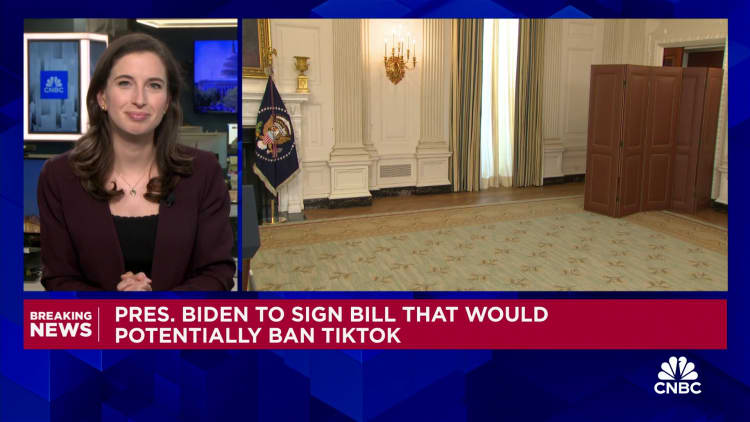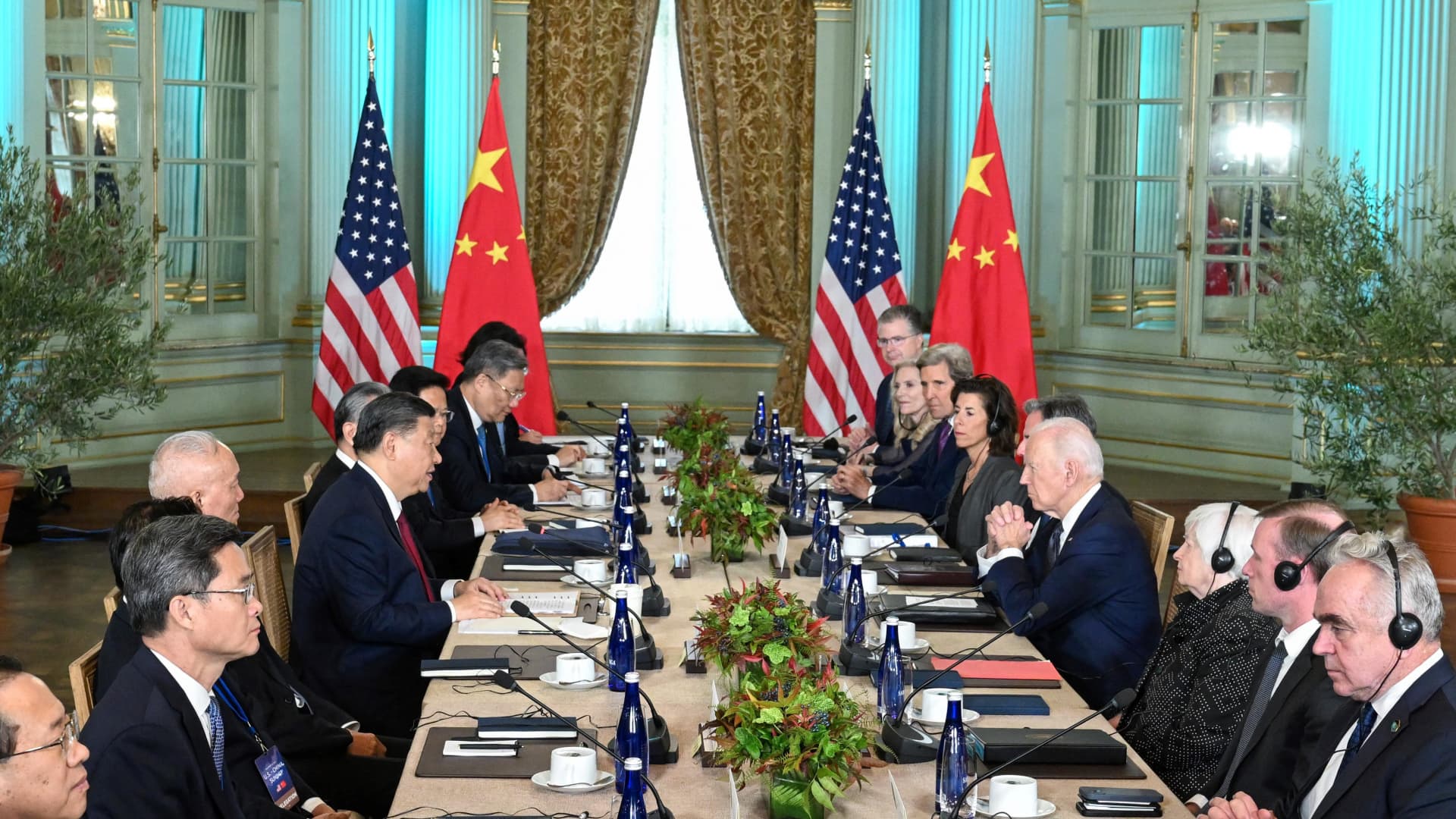Chinese President Xi Jinping meets with US President Joe Biden at the Filoli Estate in the US state of California on November 15, 2023.
Li Xueren | Xinhua News Agency | Getty Images
Beijing sent dozens of military aircraft and naval ships to Taiwan on Friday, the same day as a low-key meeting between U.S. national security adviser Jake Sullivan and Chinese Foreign Minister Wang Yi to stabilize U.S.-China relations.
According to Taiwan’s Defense Ministry, China sent 33 military aircraft and six naval ships to Taiwan from 6 a.m. Friday to 6 a.m. Saturday local time. Thirteen of the aircraft crossed the Taiwan Strait.
The increased military pressure comes as the US and China try to get relations back on track after a few icy years. For example, at their meeting, Sullivan and Wang confirmed a plan to launch a joint U.S.-China “counter-drug task force” on Tuesday to address the fentanyl crisis.
“Mr. Sullivan emphasized during the meeting that the United States and the People’s Republic of China are in competition, but the United States does not seek conflict or confrontation and that there are areas of cooperation in the relationship,” a senior administration official said Saturday.
But China’s military moves in the last 24 hours could complicate hopes for cooperation.
China’s treatment of Taiwan, which it considers its territory, is a sensitive sticking point in its precarious relationship with the United States, which believes in Taiwan retaining its self-rule status. The contentious issue comes up at almost every meeting between the U.S. and China, including high-profile talks between President Joe Biden and Chinese President Xi Jinping in November.
During their two-day meeting on Thursday and Friday in Bangkok, Sullivan and Wang discussed resuming military communications, stemming the flow of fentanyl and mitigating the risks of artificial intelligence.
Sullivan also reiterated the US stance on maintaining the status quo of Taiwan’s sovereignty. But China has repeatedly rejected the US position and clearly stated its intention to “reunify” Taiwan with the mainland.
China’s military pressure on Taiwan comes at what senior government officials are calling a “period of higher tensions.”
Taiwan voters recently elected Democratic Progressive Party candidate Lai Ching-te as their next president. Lai was China’s least popular candidate as he supported maintaining Taiwan’s status quo.
In the run-up to this election, the US was preparing for a range of responses from China.
“Any time we move into a period of higher tension, there are of course always emergency talks in the U.S. government,” a senior administration official said at the time.
“I don’t want to go into detail, but of course we need to be prepared and think through all eventualities… from no response to higher expectations.”
Source link
2024-01-27 17:42:16
www.cnbc.com







